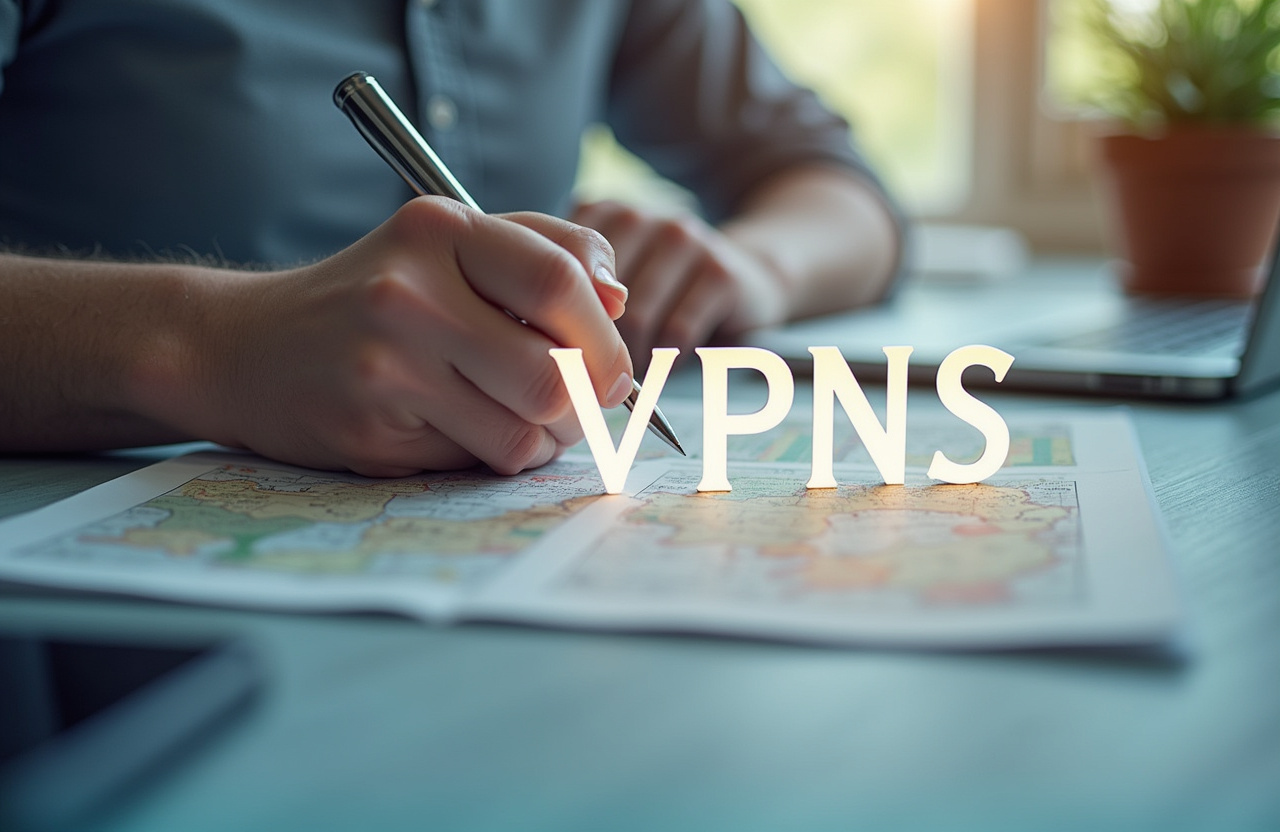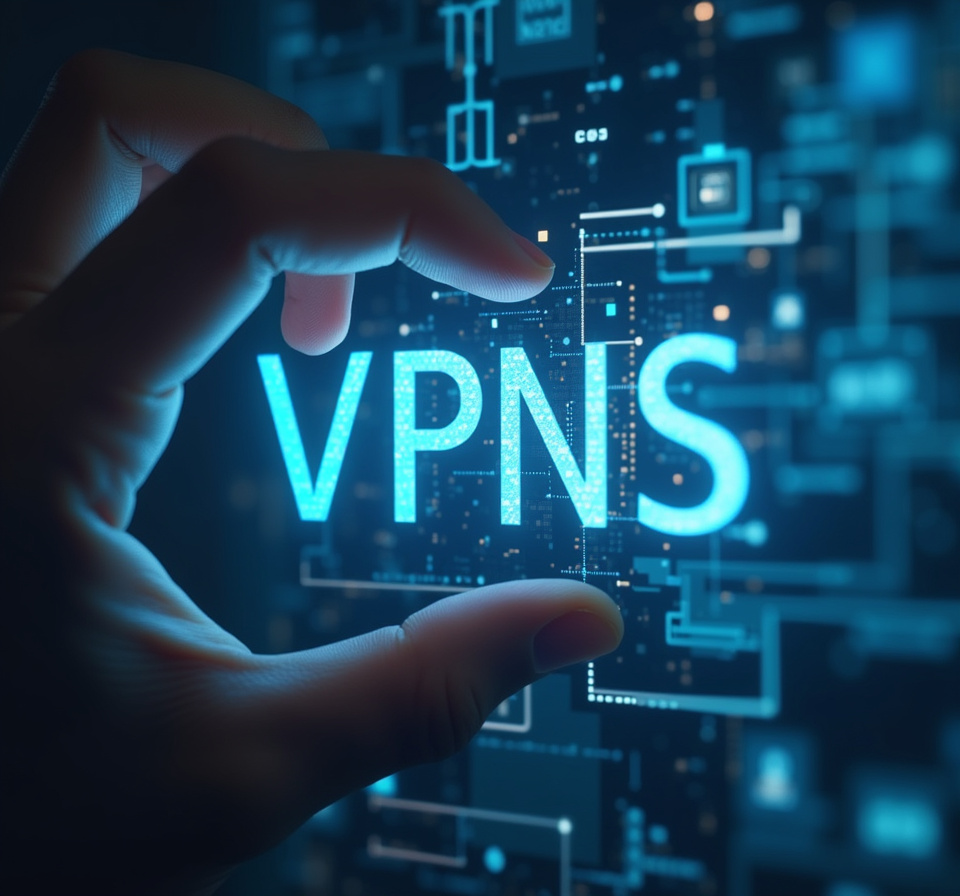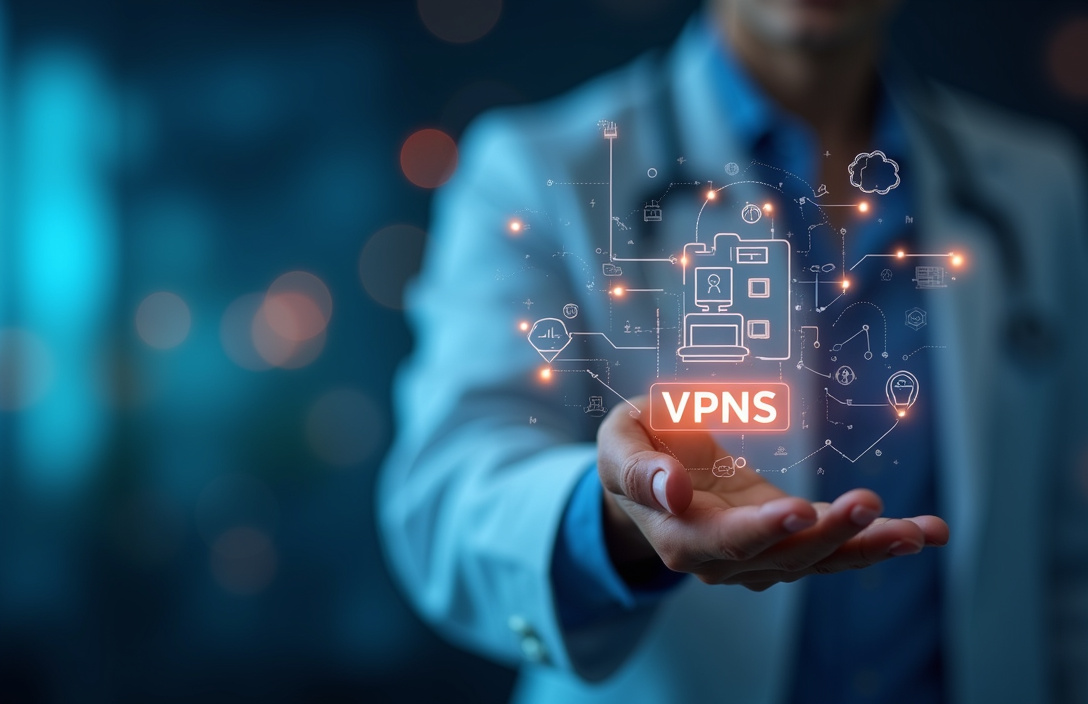VPNs for Genealogists: Safeguarding Ancestral Research

Table of Contents
VPNs for Genealogists: Safeguarding Ancestral Research
In the digital age, the pursuit of family history has transformed from dusty archives to online databases, collaborative genealogy platforms, and digitized records accessible from anywhere in the globe. Genealogists, in their quest to uncover their ancestral roots, rely heavily on the internet to access birth certificates, census records, immigration documents, and a wealth of other sensitive information. However, this reliance on the digital realm also exposes genealogists to a growing number of online threats, including data breaches, identity theft, and surveillance.
Protecting sensitive genealogical data and ensuring privacy is therefore essential. This is where Virtual Private Networks (VPNs) emerge as indispensable tools, providing a secure shield for ancestral research activities. Think of them as a protective layer between you and the dangers lurking online.
A genealogist VPN is no longer a luxury; it is a necessity for secure family history endeavors. Genealogists, often perceived to be diligent researchers unearthing the past, must also be savvy protectors safeguarding present day data. The digital footprint they leave when researching ancestral research can be significant.
Each query, search, and downloaded document leaves crumbs behind that can be exploited. Data protection is paramount, urging genealogists to actively seek out tools and strategies that minimise their online vulnerabilities. Family history security is not just about safeguarding personal details, but also maintaining the integrity and accuracy of gathered evidence.
Erroneous alteration or loss of data can significantly impact the validity of genealogical conclusions. VPN for genealogists thus becomes a crucial part of a comprehensive security plan, aiding in the prevention of unauthorized data access. It helps create a safe and secure digital environment where genealogists can dig into the past without risking their own present and future.
Ancestral research today happens across a multitude of networks: home Wi-Fi, public hotspots, libraries, and at family archives. All these hotspots pose varying degrees of risk. Unsecured networks, very common in public places, are perfect breeding grounds for hackers looking to intercept data.
Imagine sitting in a coffee shop, diligently searching through digitized parish records on a public Wi-Fi network. Unknowingly, you're broadcasting your data over an unprotected channel, making you a target for cybercriminals lurking on the same network. A skilled hacker can easily intercept your login credentials, credit card details, and other sensitive information, wreaking havoc on your personal and financial life.
A VPN encrypts your data, making it unreadable to anyone who might be snooping on the network. Even if a hacker were to intercept your traffic, they would only see encrypted gibberish, rendering your data useless to them. Ensuring the integrity of your data is critical in genealogical research, as inaccurate or manipulated records can lead to incorrect family trees and misinterpretations of your heritage.
Imagine a scenario where a malicious actor gains access to your online genealogy account and alters key details, such as birth dates, names, or family relationships. This could lead to significant errors in your research and even damage your reputation as a genealogist. By using a VPN, you reduce the risk of unauthorized access to your genealogy accounts and protect your data from tampering.
Genealogists often collaborate with others, sharing sensitive family information and historical documents. A VPN ensures that these communications are encrypted and protected from eavesdropping, preventing unauthorized access to shared data. When conducting ancestral research, you are often required to provide personal information, such as your name, email address, and even family details, to access historical records and online databases.
A VPN helps to protect your privacy by masking your IP address and encrypting your data, making it more difficult for websites and online services to track your activities and collect your personal information. Accessing geo-restricted genealogical resources in other countries becomes seamless with a VPN. By connecting to a server in the target country, you can bypass these restrictions and access the information you need, regardless of your physical location.
It allows for the seamless access to resources that might otherwise be out of reach.
Unveiling the Risks: Cybersecurity Threats to Genealogical Research
The core function of a VPN is to create a secure, encrypted tunnel for your internet traffic, masking your IP address and encrypting the data you send and receive. This effectively hides your online activity from prying eyes, including your Internet Service Provider (ISP), government surveillance agencies, and malicious actors. Understanding the functionality of VPNs is the foundation of safeguarding your genealogical research.
By encrypting your internet traffic, a VPN makes it nearly impossible for third parties to intercept and decipher your data. This is crucial when accessing sensitive historical records, such as birth certificates, marriage licenses, and death certificates, which often contain personal information that could be exploited for identity theft. Imagine you open a secured digital portal, away from the prying eyes of the public world.
That is what a VPN does for your research. A crucial aspect of a VPN for genealogists is its ability to mask your IP address, which is a unique identifier that can be used to track your location and online activity. By routing your traffic through a VPN server in a different location, your real IP address is concealed, making it difficult for websites and online services to track your movements.
While researching your family's history, you might access genealogy websites, forums, and online databases. These sites may collect your IP address and other identifying information, which could be used to profile your interests and activities. A VPN prevents such tracking by masking your IP address and assigning you a new one associated with the VPN server.
Consider the implications of regularly accessing sensitive records related to your ancestors. Without a VPN, your ISP can track every website you visit, every search query you make, and every document you download - creating a detailed profile of your genealogical interests and potentially exposing your family history to unwanted scrutiny. A VPN prevents this by encrypting your traffic and masking your IP address.
VPNs also offer an advantage when collaborating with other researchers. Sharing sensitive family information and historical documents can be risky, especially if you're using unencrypted channels. A VPN ensures that these communications are encrypted and protected from eavesdropping.
Whether you're exchanging emails, sharing files, or participating in online discussions, a VPN adds an essential layer of security to your collaborations. Furthermore, many public Wi-Fi networks are inherently insecure, making them prime targets for hackers and cybercriminals. Connecting to these networks without a VPN can expose your data to significant risk.
A VPN encrypts your traffic and protects your data from being intercepted by malicious actors on the same network. The benefits of integrating a VPN into your genealogical work extend beyond mere data encryption. It strengthens your overall cybersecurity posture, reducing your susceptibility to different online vulnerabilities.
In essence, a VPN empowers you to take control of your online privacy and security, ensuring that your genealogical research remains protected from prying eyes and malicious threats. It provides a secure platform for exploring your family history, collaborating with other researchers, and accessing sensitive information without compromising your personal data. Accessing international archives often requires bypassing geographical restrictions.
With a VPN, you can connect to servers in different countries, effectively spoofing your location and gaining access to resources that might otherwise be inaccessible. If you're researching ancestors who emigrated from another country, you can connect to a VPN server in that country and access local genealogical databases and historical records. This opens up a world of possibilities for uncovering new information about your family history.
Fortifying Your Family History: How a VPN Protects Your Data
Selecting a VPN that aligns with your specific genealogical research practices necessitates a comprehensive assessment of several factors. Privacy and security protocols should be at the forefront of your decision-making. The VPN service should employ robust encryption standards like AES-256, which is considered unbreakable by current computing standards.
This level of encryption turns your data into an indecipherable jumble, making it virtually impossible for anyone to intercept and understand your online activity. When evaluating a VPN’s security posture, pay close attention to the protocols it supports. OpenVPN and WireGuard are widely regarded as the most secure and reliable VPN protocols, offering a balance of speed and security.
Avoid VPNs that rely on outdated or less secure protocols like PPTP, which have known vulnerabilities. The VPN should have a strict no-logs policy, which ensures that the provider does not collect or store any data about your online activity. This policy is crucial for maintaining privacy and preventing your browsing history from being exposed.
Read the VPN’s privacy policy carefully to understand what data they collect and how they use it. Any VPN that logs your browsing history, IP address, or other identifying information should be avoided. Furthermore, ensure the VPN is located in a jurisdiction with robust data protection laws.
This often dictates how user data is handled and protected. A VPN based in a country with strong privacy regulations is more likely to prioritize your privacy. Research the data protection laws of the country where the VPN is based to understand your rights and protections.
Speed and reliability are vital considerations, especially when dealing with large databases and high-resolution images of historical documents. A slow or unstable VPN connection can significantly hinder your research progress, leading to frustration and delays. Look for VPN providers with a wide range of servers in different locations.
More servers usually mean better speeds and reliability, as you can choose a server that is close to your actual location or to the location of the genealogical resources you're accessing. Before committing to a VPN, take advantage of free trials or money-back guarantees to test its speed and performance. Run speed tests with and without the VPN to see how much it affects your internet speed.
Assessing the user interface and ease of use of the VPN is also critical, especially for genealogists who may not be technically savvy. A VPN with a user friendly interface and clear instructions can make the setup and connection process much simpler. Look for VPNs that offer intuitive apps for your computer, smartphone, and tablet, allowing you to easily connect to the VPN on any device.
Some VPNs offer specialized features tailored to specific needs, such as dedicated IP addresses, which can be useful for accessing genealogy websites that require a static IP for secure access. Split tunneling is another important feature that allows you to choose which applications route their traffic through the VPN and which ones use the direct internet connection. This can improve performance for certain applications that don't require VPN protection.
Another key feature to look for is automatic kill switch. This helps to prevent data leaks if your VPN connection drops out. By cutting off your internet access temporarily, it prevents any unencrypted traffic from being sent.
Choosing the Right Shield: Selecting a VPN for Genealogy
The integration of a VPN into your genealogical research workflow follows a few key steps. First, start by researching and comparing different VPN services, considering the factors discussed earlier, such as security, speed, privacy, and ease of use. Read reviews, compare pricing plans, and take advantage of free trials to find a VPN that meets your specific needs and budget.
Once you've chosen a VPN, the next step is to create an account and download the VPN software or app for your device. Most VPN providers offer apps for Windows, macOS, Android, and iOS, making it easy to connect to the VPN on any device you use for genealogical research. Installing the VPN software is usually a straightforward process.
Follow the instructions provided by the VPN provider to download and install the software on your device. Once the VPN is installed, launch the app and log in with your account credentials. After logging in, you'll typically see a list of available server locations.
Choose a server location that is appropriate for your needs. If you're accessing genealogical resources in a specific country, connect to a server in that country. Otherwise, choose a server location that is close to your actual location for optimal speed and performance.
Connecting to the VPN is usually as simple as clicking a connect button. Once the connection is established, your internet traffic will be routed through the VPN server, and your IP address will be masked. Before you start your genealogical research, verify that the VPN connection is working properly.
Check your IP address to make sure it matches the IP address of the VPN server. You can use online tools like "WhatIsMyIP" to check your IP address. With VPN active, you can browse genealogy websites, access online databases, and collaborate with other researchers with enhanced security and privacy.
Remember to keep the VPN connected whenever you're accessing sensitive information or using public Wi-FI networks. Enable the VPN's automatic kill switch feature to ensure that your internet connection is automatically disconnected if the VPN connection drops out. This will prevent any unencrypted traffic from being sent and protect your data from exposure.
Some VPNs allow you to create profiles for different use cases. For example, you can create a profile for genealogical research that automatically connects to a specific server location and enables specific security features. This can streamline your workflow and ensure that you're always protected when conducting your research.
Take some time to explore the VPN's settings and customize them to your preferences. You can adjust the level of encryption, choose different VPN protocols, and configure other settings to optimize your security and performance. Periodically check for updates to the VPN software or app to ensure that you have the latest security patches and features.
Most VPN providers automatically notify you when updates are available. By following these steps, you can seamlessly integrate a VPN into your genealogical research routine and enjoy the benefits of enhanced security and privacy.
In conclusion, VPNs serve as an essential tool for genealogists navigating the digital landscape of ancestral research. They provide a critical layer of security and privacy, safeguarding sensitive data from various online threats. By encrypting internet traffic, masking IP addresses, and providing secure connections, VPNs empower genealogists to explore their family history with confidence, knowing that their personal information and research activities are protected.
A genealogist VPN is more than just a technical add-on; it's a commitment to responsible and secure research practices. Ignoring the potential risks associated with online genealogical research can have serious consequences, ranging from identity theft and data breaches to the manipulation of historical records. Investing in a reliable VPN is an investment in your personal security and the integrity of your genealogical findings.
As technology evolves and online threats become more sophisticated, the need for robust security measures like VPNs will only increase. Stay proactive in your efforts to protect your data and privacy by staying informed about the latest cybersecurity threats and best practices. Encourage other genealogists to adopt secure research habits and to prioritize data protection in their work.
By working together, we can create a safer and more secure online environment for genealogical research. The integration of a VPN should be seen as part of a broader strategy for online safety. This includes using strong passwords for all online accounts, enabling two-factor authentication whenever possible, and being cautious about clicking on suspicious links or downloading files from untrusted sources.
Combine the use of a VPN with other security tools, such as antivirus software and a firewall, to create a multi-layered defense against online threats. Educate yourself and others about the importance of online security and privacy. Share your knowledge with fellow genealogists and help them understand the risks and how to mitigate them.
Staying informed about the ever-changing landscape of online security is crucial for protecting your data and privacy. Read cybersecurity news, follow security experts on social media, and attend webinars and conferences to stay up-to-date on the latest threats and best practices. The decision to use a VPN underscores a commitment to ethical research.
Accurate family history relies on the integrity of data, and VPNs contribute to this by protecting data from unauthorized access and modification. In an era where digital information impacts personal narratives, VPNs help ensure that these narratives remain authentic and under the control of the family historian. As the field of genealogy continues to grow and embrace digital resources, the use of VPNs will become increasingly important.
By embracing this technology and promoting secure research practices, genealogists can ensure that their work remains protected and that their family history is preserved for generations to come. This proactive approach to data security allows you to focus on the fascinating journey of uncovering your family's past, without the worry of compromising your personal information or the integrity of your research.
Stay Updated
Get the latest VPN news, tips, and exclusive deals to your inbox.




